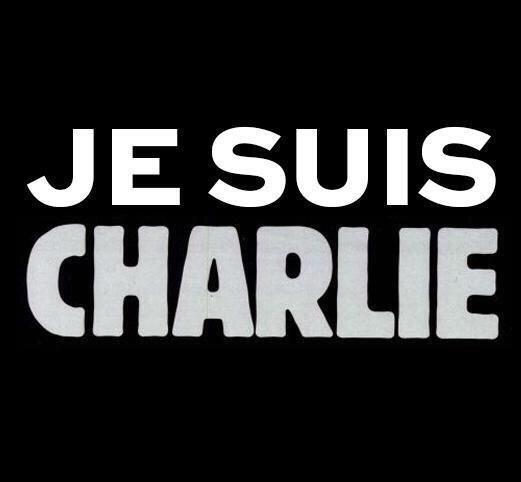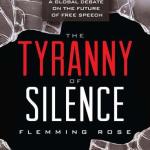No words needed #cphshooting pic.twitter.com/nJR7IzVNJe
— Susanne Nordenbaek (@SNordenbaek) February 15, 2015
On Sunday an Islamist gunman attacked a panel discussion on “Art, blasphemy and the freedom of expression” being held at a cultural center in Copenhagen:
Riveting #Copenhagen audio: as panelist asks why we keep saying "free speech 'but'…" shots begin http://t.co/SJopqAASsx via @CEMB_forum
— Walter Olson (@walterolson) February 15, 2015
One of the panel speakers, and the likely target of the attack, was Swedish artist Lars Vilks, who appeared on the March 2013 al Qaeda magazine Inspire “hit list,” along with Charlie Hebdo’s Charb, Ayaan Hirsi Ali, and others. Vilks has faced many perils, some of them in the U.S., since drawing a sketch of Muhammad a decade ago.
I am particularly proud of my own Cato Institute for publishing and recently hosting Danish editor Flemming Rose, who like Vilks appears on the al-Qaeda hit list. Rose is foreign editor of Jyllands-Posten, the newspaper in Denmark that published the famous Muhammad cartoons and nearly a decade later remains heavily guarded by police. In the wake of Sunday’s attack, I decided to tweet some highlights from a November Cato panel in which author Jonathan Rauch, known for his writings in defense of free speech (and an old friend), interviewed Rose about his new book The Tyranny of Silence and its implications. Referring to the famed page of Muhammad cartoons:
"Today, do you think anyone would publish a page like that in Denmark?" "No." (at 22:35) http://t.co/FBzYqbHLEy #CopenhagenShooting
— Walter Olson (@walterolson) February 15, 2015
Unpublishable owing to fear: "And not only in Denmark." "Anywhere in Europe?" "No." (22:35) #CopenhagenShooting
— Walter Olson (@walterolson) February 15, 2015
Remember, this panel was taped in November, which makes Rose’s next comment especially poignant:
Unpublishable in Europe: "In France there is a satirical magazine, Charlie Hebdo. Maybe they would do it." (22:35) http://t.co/FBzYqbqaN0
— Walter Olson (@walterolson) February 15, 2015
A major theme of the conversation was hate speech laws, widely adopted in Europe, but not in the United States due to our First Amendment jurisprudence:
Flemming Rose, Danish editor facing al Qaeda threat, on why US is right, UN/Europe wrong on hate speech law (29:10) http://t.co/FBzYqbqaN0
— Walter Olson (@walterolson) February 15, 2015
“It basically boils down to a wrong reading of the reasons behind the Holocaust,” Rose said (31:30). It wasn’t free speech that cleared a path for the Nazis: “In Weimar Germany you had hate speech laws on the books” (32:15). And in fact the “vast majority” of European hate speech laws now in effect date not to the period after 1945, but to that since the fall of the Berlin Wall (34:30)
Now the idea is ramifying:
Proposal arising in EU "that states need to begin adopting sanctions against sexist speech" — @jon_rauch (37:00) http://t.co/FBzYqbHLEy
— Walter Olson (@walterolson) February 15, 2015
Instead of sensitivity training, maybe there should be insensitivity training for freedom/tolerance to endure (44:30) http://t.co/FBzYqbHLEy
— Walter Olson (@walterolson) February 15, 2015
While the U.S. Supreme Court has been a bulwark against hate-speech prohibitions, their advocates have made some inroads in academia:
Touring colleges, @jon_rauch hoped to find students in favor of untrammeled discussion. No such luck (50:00) http://t.co/FBzYqbHLEy
— Walter Olson (@walterolson) February 15, 2015
But it’s complicated:
For all their speech-code reputation, says @glukianoff, US college papers were the readiest to print MoToons (51:00) http://t.co/FBzYqbHLEy
— Walter Olson (@walterolson) February 15, 2015
Which drew in Greg Lukianoff himself with a comment:
@walterolson That was a pleasant surprise to me, but not all of the campus responses were good: http://t.co/UHYb6rrece
— Greg Lukianoff (@glukianoff) February 15, 2015
This was to become the most shared entry in my series:
"In dictatorships, hate speech codes are in fact used to silence dissidents" — Flemming Rose (53:15) http://t.co/FBzYqbHLEy
— Walter Olson (@walterolson) February 15, 2015
There was also a side conversation (you can read it here) about a comment by Lars Vilks, the attacked Swedish artist:
Lars Vilks: terrorists “must realize their project is meaningless”. http://t.co/1LlljF4yCq
— Walter Olson (@walterolson) February 15, 2015
I read “meaningless” in this context to stand for “futile”: a madman unable to achieve his goal does not become sane, but may switch projects. The way to make an attack on speech futile is make clear that the resented speech will continue unbowed or even intensified, as Vilks has done by continuing to pursue his work and proclaim his views in public and without apology — good advice for us on this side of the Atlantic, too.
Earlier on the Charlie Hebdo attack; on wobbling U.S. leadership in international forums on the speech topic; on blasphemy laws, and my piece in Time last month, “Blasphemy Is at the Front Lines of Free Speech Today“.


